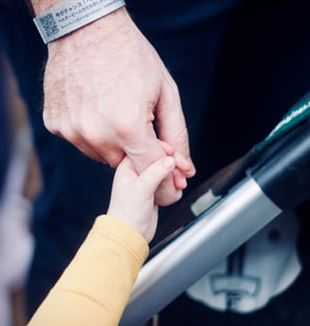
"Before I could not see, and now I see”
David recounts how helping his son prepare for his First Holy Communion became an opportunity to let the faithfulness to the event prevail in him over mere interpretations.My son just started his preparation for first communion and the other day I happened to be nearby as my wife was talking to him about the Eucharist. She was asking him what it is and how important it is and I was thinking about this myself as I was listening while preparing my lunch. From a first impression, as a child hearing what we actually believe about the Eucharist probably sounds a bit weird, and it occurred to me that within the dynamic of educating to an understanding of the Eucharist there is a great risk of going towards the ideological: this is what we believe, it may sound weird to you, but you have to believe it too if you're going to make your first communion.
Reflecting on what Don Giuss teaches us about charitable work, I am left with the thought that this process of teaching must first be an education for myself - trying to meet the educational needs of my son "is an insufficient starting point and motive" as Don Giuss says. Thinking about my position in front of the Eucharist was a great provocation to me because while I certainly believe the teaching, I see in myself that I lack the same position of the blind man of whom Carron reminds us during Beginning Day. He was not "moved an inch by interpretations"; "he did not even have the slightest doubt"; he "was not confused even for a minute". Is this my position? How can I teach my son if it isn't?
For the man born blind, there was no ideology whatsoever, he simply starts from his own experience, "I couldn't see, and now I see." This is a helpful example to keep in front of me when thinking about preparing a child for first communion, which in many ways seems so ordinary and routine, but hidden within this opportunity there is a chance for me to ask myself, "what is my position in front of the Eucharist? What does my own experience tell me?"
As my son prepares for this seemingly ordinary moment in his life, I'm provoked to desire a deeper understanding of these sacraments first myself and perhaps through this I may contribute to his preparation throughout the upcoming year.
David, Ottawa